Ghent University, Belgium
Founded in 1817, Ghent University is an internationally renowned, open, pluralistic and socially engaged university in Belgium. Ghent University is one of the largest Belgian universities, consisting of 50,000 students and 15,000 staff members. Over the past 200 years, Ghent University has counted many eminent scientists and Nobel Prize winners, 1,153 patents and 76 spin-offs. In addition to satellite campuses elsewhere in Flanders and a Global Campus in Songdo, South Korea, Ghent University maintains many inter-university partnerships and programs both inside and outside of Europe. It is one of the greatest beneficiaries of funding from the Flemish Research Council. It was also among the Top 30 recipients of major research grants awarded by the European Research Council under the funding framework Horizon Europe. It offers more than 200 programmes (73 English-taught master’s programmes) and conducts in-depth research within a wide range of scientific domains.

Bart Dessein
Scientific coordinator – personal profile page
![]()
Bart Dessein (PhD, Ghent University, 1994) is a senior full professor at the Department of Languages and Cultures of Ghent University. He leads the research group ‘East Asian Culture in Perspective: Identity, Historical Consciousness, Modernity’. Prof. Dessein is Honorary Professor at Liaoning University, People’s Republic of China, and Guest Professor at Shanghai University, PRC. He is a member of the Royal Academy for Overseas Sciences (Belgium), where he is former director of the Class of Human Sciences. From 2016 to 2022, Prof. Dessein served as President of the European Association for Chinese Studies (EACS), and from 2017 to 2019, he held the position of Vice-President of the European Association for Chinese Philosophy (EACP). He sits on the Board of the Belgian Institute for Higher Chinese Studies (Brussels) and is a Senior Associate of the Egmont Royal Institute for International Relations (Brussels).
As the scientific coordinator of the ‘ReConnect China’ project, Prof. Dessein provides multifaceted contributions to WPs, including Work Package 3, 5, 6 and Work Package 4 through Egmont.
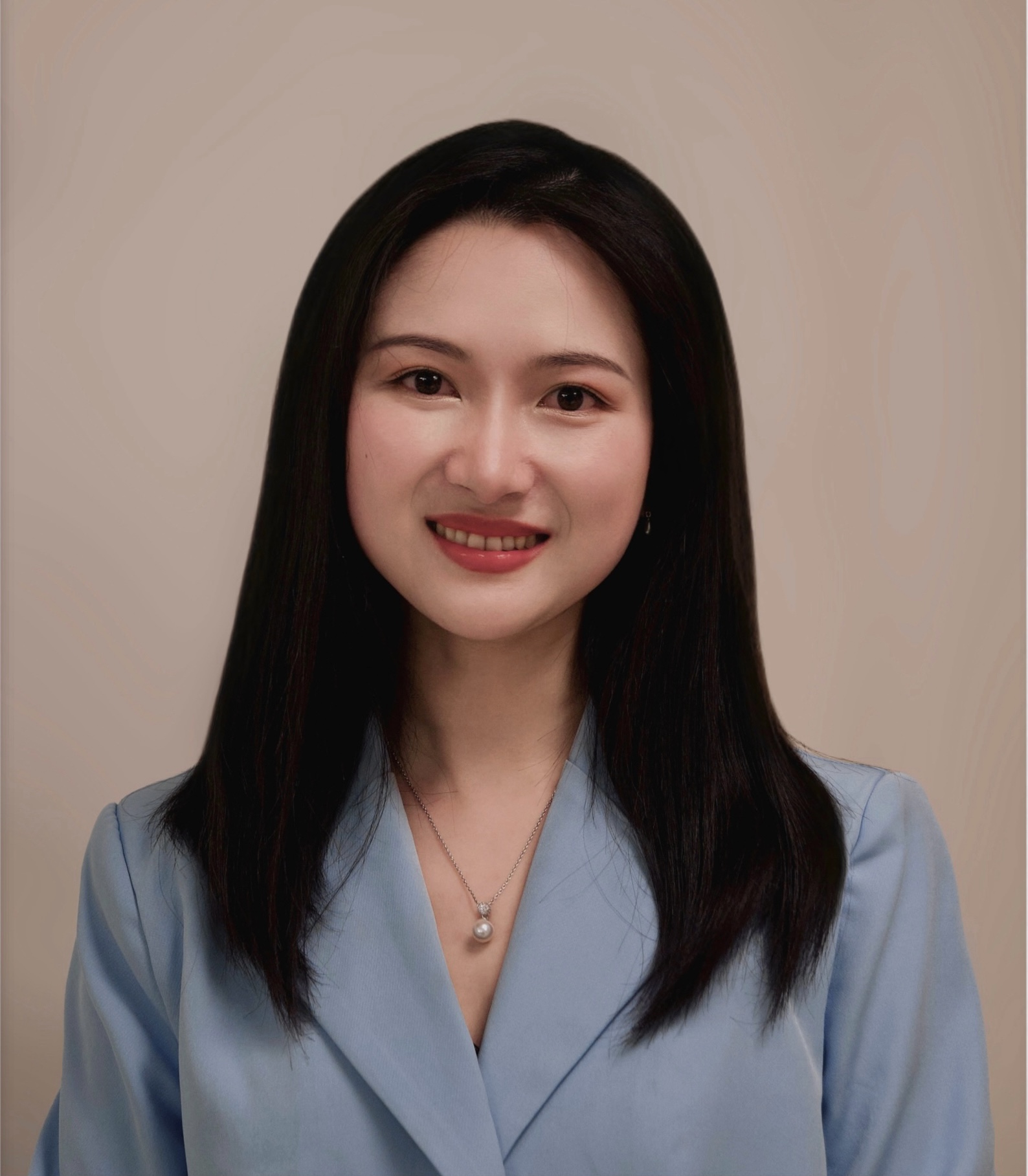
Huanyu Zhao
Postdoc researcher and scientific manager of the consortium – personal profile page
Dr. Huanyu Zhao is a political scientist specializing in international studies, political economy, and political methodology. Her research delves into the mechanisms of how China, International Organizations (IOs), and the global governance landscape evolve within the shifting global order, both in the short and long term. With a proven track record of academic and policy-relevant publications, Zhao employs extensive fieldwork and mixed-method designs to inform her findings.
Zhao holds positions within professional networks. She serves as the vice-head of the Marie Curie China Chapter, an EU COST expert, a member of the EU-KNOC Core Group, and a member of the FWO global governance scientific research community.
As the scientific researcher and manager of the ‘ReConnect China’ project, Dr. Zhao oversees the coordination of scientific research and management efforts within the consortium. She contributes to multiple work packages, including Work Packages 3, 4, 5, and 6, with the vision of maximizing impacts through cross-WP collaboration and effective outreach with stakeholders.

Yang Li
PhD Researcher
Li Yang is a PhD researcher affiliated with the ‘ReConnect China’ project and the research group ‘East Asian Culture in Perspective: Identity, Historical Consciousness, Modernity’ of Ghent University. Currently, Yang is researching to what extent China’s domestic nationalism influences the evolution of China’s diplomatic discourse from 2012 to 2025. This study focuses on the significant features of domestic nationalism in China. It seeks to unravel the internal and external reasons for the emergence of radical nationalism.
In 2016, Yang acquired a BA of Laws in Diplomacy major at Beijing Foreign Studies University. In 2020, he achieved his MSc in China and Globalisation from Kings College London. Before joining Ghent University, he also acquired an MA in History from University College London. Li further acquired a postgraduate degree at Renmin University of China in 2019. At present, he is pursuing a PhD degree in Asian Languages and Cultures at Ghent University, being fully funded by the ReConnect China Project.
Inside ReConnect China, Yang primarily works on China’s domestic governance and China’s foreign policy as part of Work Package 3.
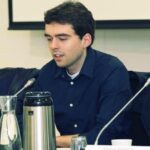
Jasper Roctus
PhD Researcher, Ghent University – Associate Fellow, Egmont Institute
Jasper Roctus is a PhD researcher affiliated with the research group ‘East Asian Culture in Perspective: Identity, Historical Consciousness, Modernity’ of Ghent University, and presently works on evolutions in modern narratives concerning Sun Yat-sen (1866–1925) on both sides of the Taiwan Strait. Before starting his PhD, Jasper completed a bachelor and master in Oriental Languages and Cultures (Sinology) at Ghent University. Jasper’s ‘PhD Fellowship fundamental research’ is funded by the Research Foundation – Flanders (FWO).
Inside ‘ReConnect China’, Jasper primarily works on domestic Chinese politics and cross-Strait relations as part of Work Packages 3, 4 and 5.
Clingendael Institute, Netherlands

Raoul Bunskoek
Leader of the Clingendael China Centre since 1 February 2024 – profile
Raoul conducts research on China’s foreign policy and diplomacy, China’s (international) political economy, and Chinese development thinking and practices abroad, particularly on the African continent. Raoul previously was a Senior Research Fellow at the European Research Council’s ‘Africa’s Infrastructure Globalities’ (INFRAGLOB) project, located at the University of Bayreuth, Germany. His recent publications focus on China’s Community of Common Destiny and the Belt and Road Initiative (2021) and the nature of China’s foreign policy (2019).
Raoul holds PhD and MA degrees in Political Science and International Relations from National Taiwan University, and a BA in Chinese Studies from Leiden University. During his PhD, he worked for the Hu Fu Center in East Asia Democratic Studies and the Institute of Political Science at Academia Sinica (IPSAS) in Taipei, Taiwan (R.O.C.).
Raoul speaks fluent Mandarin Chinese and has extensive fieldwork experience. He investigated the nature and training of Chinese transnational professionals and cadres in Taipei (April-May 2022), Singapore (June 2022), Washington, D.C. (March 2023), and Shanghai, Beijing, and Hong Kong (November-December 2023), and observed and participated in the daily lives of Chinese mining, construction, and transportation professionals in Copperbelt Province and Lusaka, Zambia (June-July 2023).

Ties Dams
Research Fellow, Clingendael China Centre, Clingendael Institute – profile
Ties Dams is a research fellow at the Clingendael Institute. His research focus is on Europe’s great power competition, particularly with China. How does China’s ascent impact Europe’s evolution as a geopolitical actor?
Educated as a political theorist in Utrecht, Xiamen, Hongkong and London, Ties has a particular interest in the power of narrative. How do great powers tell stories to project geopolitical influence? Bridging the gap between the philosophical and the strategic, he is a member of the EEAS’s Expert Roundtable on Foreign Information Manipulation and Influence, the European Centre of Excellence for Countering Hybrid Threats’ expert pool, and speaks broadly about strategic communications, soft power strategies and influence activities.
In 2018 he published the first book on the life and rule of President Xi Jinping, in Dutch, titled De Nieuwe Keizer. It quickly became a bestseller. Since then he has become a much-seen expert on China’s geopolitics for Dutch TV and radio as well as a regular contributor to international print media on Sino-European relations. He continues to publish broadly as an essayist for general audiences.
Expertise: China – Europe and the World – Transatlantic Relations – Foreign Information Manipulation and Influence

Ingrid d’Hooghe
Senior Research Fellow, Clingendael China Centre, Clingendael Institute. – profile
Political scientist and Sinologist. Expert on China, China’s foreign policy and geopolitics, China-EU relations, China science and tech developments and Europe-China S&T collaboration.
In ReConnect China, d’Hooghe contributes to WP5, together with the University of Tartu; WP5 develops the Europe-China Knowledge Forum (ECKF), an intra-European knowledge hub on China aimed at creating networks of and synergies between researchers and policy makers; organises Roundtables with European stakeholders to discuss implications of strategic questions regarding China; and organises Conferences to disseminate the research findings of the other WPs.

Sense Hofstede
Research Fellow, Clingendael China Centre, Clingendael Institute. – profile
International Relations scholar of China in the Indo-Pacific with a research background in Chinese nationalism, diaspora, and cross-Strait relations, as well as expertise in the domestic politics of China and Taiwan.
Within ReConnect China working on the Europe-China Knowledge Forum.

Xiaoxue Martin
Research Fellow, Clingendael China Centre, Clingendael Institute. – profile
Political scientist. Expert on China, China’s foreign policy and geopolitics, in particular Hong Kong and Taiwan affairs, and China’s relations with the United States and European Union.
In ReConnect China, she works on networks and synergies in WP5. This work package develops the Europe-China Knowledge Forum (ECKF), an intra-European knowledge hub on China aimed at creating networks of and synergies between researchers and policy makers; organises Roundtables with European stakeholders to discuss implications of strategic questions regarding China; and organises Conferences to disseminate the research findings of the other WPs.
Egmont Royal Institute for International Relations, Belgium

Sven Biscop
Prof. Dr. Sven Biscop read political sciences and obtained his PhD at Ghent University, where today he is a professor, lecturing on Belgian and European foreign and defence policy and on the grand strategy of the European Union and the other great powers. At Egmont, which he joined in 2002, he is the director of the Europe in the World Programme.
Professor Biscop is the lead signatory of the Reconnect China project on behalf of the Egmont Institute.

Astrid Pepermans
Senior Research Fellow at the Egmont Institute. She represents Egmont in the Reconnect China Program (Horizon 2020).
Astrid obtained a master’s degree in Political Sciences and started working as a teaching assistant at the Free University of Brussels (VUB) in 2015. She finished her PhD thesis on the Sino-European political/economic relationship end of 2020. During her studies, Astrid conducted a study visit at the University of International Business and Economics in Beijing and, within the framework of her PhD, she was part of an exchange project at the Renmin University in Beijing.
In 2021, she started working as an assistant at the department of judicial investigation of the Court of First Instance in Antwerp, while obtaining an additional master’s degree in International and European Law.
Astrid is taking the lead on Egmont’s input for Reconnect China for WP2 and WP4, writing for both work packages.

Victor De Decker
Research Fellow in the Europe in the World Programme at the Egmont Institute since January 2023
His research centres on geoeconomics, economic statecraft, international political economy, and economic security, with a particular focus on Asia. He holds a master’s degree in International Relations from Ghent University and is working towards a PhD in Geoeconomics at both his Alma Mater and the Royal Military Academy.
Victor is assisting with the management of WP2 and WP4, writing for both work packages.
Elcano Royal Institute, Spain
Elcano Royal Institute was established in 2001 as a private foundation and is the leading Spanish think tank for international and strategic affairs and one of the leading think tanks in Europe and the world.
Elcano Royal Institute is a founding member and coordinating institution of the European Think-tank Network on China. This initiative was launched in 2014 and comprises 20 European research institutes devoted to the policy-oriented study of Chinese foreign policy and relations between China and the EU and EU member states.
Researchers of Elcano Royal Institute are actively engaged in the EU-KNOC.
Researchers of Elcano Royal Institute participate in the Cost Action 1825 CHERN.

Mario Esteban
Dr. Mario Esteban is Senior Analyst at the Elcano Royal Institute and Associate Professor at the Centre for East Asian Studies of the Autonomous University of Madrid. His research is focused on the international relations of East Asia, EU-East Asia Relations and the domestic and international politics of China. He has been senior researcher of projects funded by the Spanish Ministry of Economy, Industry and Competitiveness, the Spanish Ministry of Foreign Affairs, and the Korea Foundation. He has served as external expert for the European Commission, the European Parliament and the Spanish Ministry of Defence. He has also been visiting professor at the Beijing Foreign Studies University and the University of Turku and visiting researcher at the Chinese Academy of Social Sciences and the Chengchi National University in Taipei. He has published several books and numerous articles in academic journals such as The China Quarterly, The Journal of Contemporary China, Journal of Current Chinese Affairs, African and Asian Studies, The Chinese Political Science Review and The European Journal of East Asian Studies. Detailed list of publications.
In Reconnect China, he coordinates research on connectivity and is involved in the analysis of China’s Foreign Policy dimension and comparing China’s four instruments of power – diplomacy, security and defence, connectivity, narratives – and their application across the Indo-Pacific, Europe, Latin America/MENA and global governance.

Miguel Otero-Iglesias
Prof. Miguel Otero-Iglesias is Senior Analyst at the Elcano Royal Institute and Professor of Practice of International Political Economy at IE School of Politics, Economics and Global Affairs. He is also Research Associate at the EU-Asia Institute at ESSCA School of Management in France. Previously he was Assistant Professor in International Political Economy (IPE) at ESSCA in Paris, Adjunct Lecturer at Queen Elisabeth House at the University of Oxford, postdoctoral Research Fellow at LSE and Associate Lecturer at Oxford Brookes University, where he obtained his PhD in IPE. He also holds a MA in IPE from the University of Manchester. He has been a Visiting Research Fellow at the Institute of International Relations (Pontificia Universidade Catolica – PUC of Rio de Janeiro), the Institute of World Economics and Politics (IWEP) at the Chinese Academy of Social Sciences in Beijing, the Mercator Institute for China Studies (MERICS) in Berlin and the College of Business at Alfaisal University in Riyadh. He is the co-founder and coordinator of the European Think Tank Network of China (ETNC). He is the author of The Euro, the Dollar and the Global Financial Crisis (Routledge 2015) and has published in the top IPE journals such as Review of International Political Economy or New Political Economy. For more publications, see here.
In ReConnect China, he is leading the analysis on China’s Economic Dual Circulation Strategy and how this will impact European businesses, from both the trade and the finance angle.

Raquel Jorge
Raquel Jorge is Analyst at Elcano Royal Institute working on the technology and digital agenda. As a former Fulbright Fellow granted by the United States-Spain Fulbright Commission, she holds a Master’s in Security Policy, with a concentration in technology and cybersecurity, from the Elliott School of International Affairs at the George Washington University (Washington, DC). She also holds a MA degree in International Relations from Universidad Autonoma de Madrid, and a Double Bachelor on Sociology and Political Science and Public Administration from Universidad de Valencia (Spain) and Université Paris X (Paris, France). She has worked as expert consultant for the European Commission, and has delivered trainings on technology diplomacy to EU public servants. She has previously worked on the planning process of the National Strategy on Technology and Global Order, which addresses the first-ever approach of technology diplomacy in Spain, at the Ministry of Foreign Affairs, European Union and Cooperation, through a technical assistance contract. Before, she worked on policy projects at Harvard University’s Berkman Klein Center for Internet & Society, and at a consultancy services firm based in the United Kingdom on foresight methodologies addressed to governments and international organisations.
In ReConnect China, on the dimension of Science and Techology.and specifically she is involved on the topic of advanced semiconductors and its vital importance in a broad range of cutting-edge technology fields, and how they have become a focal point of geopolitical ambition and leverage today.

Federico Steinberg
Prof. Federico Steinberg is Senior Analyst at the Elcano Royal Institute, Visiting Fellow at the Europe Program of the Center for Strategic and International Studies, Professor of Political Economy at Madrid’s Universidad Autónoma and Special Adviser to the High Representative for Foreign and Security Policy and Vice-President of the European Commission Josep Borrell. He holds a Ph.D. in Economics from the Universidad Autónoma, an MSc in Politics of the World Economy from the London School of Economics and a Master in International Affairs from Columbia University. He has been a consultant for the World Bank in Washington DC, Ghana and Bolivia, and has worked at the Executive Office of the Secretary General at the United Nations headquarters in New York. He is also a frequent contributor to the Spanish and international media and has been invited to deliver speeches in more than 10 countries
In ReConnect China, he focuses on trade, finance and global business.

Sara Megía
Sara Megía – Director of the Project Management Office
She has a BA in Business Administration and Management (UAM), a Master’s degree in Marketing and Commercial Management (ESIC) and attended the Management and Business Management Programme at EOI. She started her professional career in 1999 as a financial auditor at PwC. She joined FCC as a senior internal auditor in 2006, initially as the Internal Audit Deputy Manager of the group’s foreign subsidiaries, later becoming the Chair’s Assistant Manager. In 2018 she was appointed Financial and Compliance Manager at Action Against Hunger Spain. She joined Elcano Royal Institute in 2021.
In ReConnect China she is Elcano’s focal point in legal and financial issues.

Cristina de Esperanza Picardo
Cristina de Esperanza Picardo is a Research Assistant (Indo-Pacific Region) at the Elcano Royal Institute, and a PhD candidate at King’s College London and the National University of Singapore.
Previously, she has worked at EsadeGeo, at the EU Institute for Security Studies (Asia desk) and at the EU Delegation to Australia. She has regularly collaborated with other think tanks and media, including the EU Centre in Singapore, the Barcelona Centre for International Affairs (CIDOB), Cadena Ser, and El Orden Mundial (EOM).
She is also a member of the Indo-Pacific Research Group (King’s College London) and a Young Leader at the Pacific Forum.
MSc in Strategic Studies from the S. Rajaratnam School of International Studies (RSIS), Singapore and a BA in International Relations from the Rey Juan Carlos University, Spain.
Innovasjon Norge, Norway
Innovation Norway is the Norwegian Government’s most important instrument for innovation and development of Norwegian enterprises and industry. Innovation Norway is owned by the Ministry of Trade, Industry and Fisheries (51%) and the county authorities (49%). Innovation Norway is an advisor a connector, a promoter for Norwegian business domestically and internationally. Norwegian enterprises have through Innovation Norway access to a broad business support system as well as financial means. The marketing of Norway as a tourist destination is also considered one of the organisation’ s important tasks as well as Invest in Norway. By combining local industry knowledge and international networks with the business, ideas and the motivation of entrepreneurs, the foundation for new successful businesses is created. Innovation Norway is the Norwegian governments official trade representative abroad, aims to assist Norwegian business to grow and explore new markets. It’s represented in more than 30 countries worldwide and in all Norwegian counties. The head office is in Oslo, the capital city of Norway. Innovation Norway has two offices in China. Beijing office is the main office as well as the Commercial Section of Royal Norwegian Embassy in China.
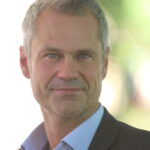
Henning Kristoffersen
Henning.Kristoffersen@innovationnorway.no
Mr. Henning Kristoffersen is the Commercial Counsellor of the Royal Norwegian Embassy in Beijing and Country Director of Innovation Norway China. Henning has more than twenty years of experience working with Norwegian-Chinese joint projects. His previous experiences include being director of public affairs in Asia for Det Norske Veritas, director of international relations at BI Norwegian Business School, and manager of the Nordic Centre at Fudan University in Shanghai. Henning has studied anthropology, Chinese language and culture at the University of Oslo.
For the ReConnect China project, Mr. Rolf Petter Almklov as a member of Project SB, is supporting and leading the WP1 as well as coordinating the work from IN towards it.
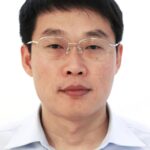
Peng GAO
Senior Commercial Officer/Advisor of the Commercial Section of Norwegian Embassy/Innovation Norway Beijing. PhD, with many years of senior management experience in large enterprises including a Norway-China Joint venture. EMP (Energy Management Program) Project Manager from 2009 to 2014. Clean Energy & Energy Efficiency Program Project Manager during 2015-2018, focus on Clean Energy & Energy Efficiency, environment protection technologies, hydrogen/ammonia and CCUS as well as process industries.
Project Manager of IN for the Horizon 2020 Project “ENRICH” during 2016-2020. Coordinates with WP1 and Task 1.2 for the Horizon Europe ReConnect China, participation in its networks, oversees and analysis. Contributes to work on the organization of workshops of Task 1.2, as well as deliveries from IN for WP1.
Institut Français des Relations Internationales, France

Françoise Nicolas
Senior Advisor to the Center for Asian Studies at the French Institute of International Relations (IFRI)
Françoise Nicolas a Senior Advisor to the Center for Asian Studies at the French Institute of International Relations (IFRI), Paris, where she was Director until February 2024. She teaches at Sciences Po, Paris (Europe-Asia program, Le Havre campus) and Sciences Po (Lyon), and is also a consultant to the Directorate for Financial, Fiscal and Enterprise Affairs (DAF) of the OECD, with a focus on Southeast Asian non-member economies.
She holds a PhD in international economics (1991) and an MA in political science (1985) from the Graduate Institute of International Studies (Geneva, Switzerland). She has also studied at the University of Sussex (1980-81) and was a visiting fellow at the Institute of Southeast Asian Studies (ISEAS) in Singapore (1999) and at the Korea Institute for International Economic Policy (KIEP) in Seoul (2004).
Her research focuses on development strategies and regional economic integration in East Asia; FDI and growth; emerging economies and globalization.

John Seaman
Research Fellow in the Center for Asian Studies at the French Institute of International Relations (IFRI)
John Seaman is a Research Fellow at the Center for Asian Studies at the French Institute of International Relations (IFRI), which he joined in 2009. His research centers around the geopolitical and geoeconomic transformations associated with China’s rise and on China’s relations with Europe and the United States. His research focuses in particular on focus on energy security and the energy transition, critical raw materials, technical standardization strategies and strategic competition in the high-tech arena.
For the ReConnect China project, he coordinates Ifri’s participation in the network, oversees and contributes to work on the Frontiers of Technology (WP 1.3) and contributes to the analysis of China’s policies in the field of diplomacy and connectivity (WP 4.1 and 4.3).
In addition to ReConnect China, Mr. Seaman is also a co-founding and coordinating member of the European Think-tank Network on China (ETNC) and participates in a number of European policy research networks, including as an active participant in the China in Europe Research Network’s (CHERN) working group on High-Technology and Innovation as a member of the Digital Power China initiative.

Marc Julienne
Director of the Center for Asian Studies of the French Institute of International Relations (IFRI)
Marc Julienne is Director of the Center for Asian Studies of the French Institute of International Relations (Ifri). He mainly focuses on China’s foreign and security policy, as well as on strategic issues.
He has a PhD in political science and international relations from the National Institute of Oriental Languages and Civilizations (INALCO, Paris), where he now teaches international relations in Northeast Asia (Master’s Degree in International Relations).
Before joining Ifri in 2020, he was a Research Fellow at the Foundation for Strategic Research (FRS, Paris) for four years. He was an associate PhD candidate at the Strategic Research Institute of the Ecole militaire (IRSEM, 2016–2019) and a Research Fellow at the Asia Center (Paris) for two years. He was also a Visiting Fellow at the Mercator Institute for China Studies (MERICS, Berlin, 2015) and at the Shanghai Academy of Social Sciences (SASS, Shanghai, 2017).
Istituto Affari Internazionali, Italy

Riccardo Alcaro
Riccardo Alcaro is Research Coordinator and Head of the Global Actors Programme at IAI. His main area of expertise are transatlantic relations, with a special focus on US and European policies in Europe’s surrounding regions. Riccardo has been a visiting fellow at the Brookings Institution in Washington and a fellow of the EU-wide programme European Foreign and Security Policy Studies (EFSPS). He has coordinated the TRANSWORLD project on transatlantic relations and global governance, funded under the EU 7th Framework Programme, and the JOINT project on EU foreign & security policy, funded under the EU’s Horizon 2020. He is the author, amongst others, of Europe and Iran’s Nuclear Crisis (Palgrave Macmillan 2018) and editor of The Liberal Order and its Contestations (Routledge 2018). He holds a summa-cum-laude PhD from the University of Tübingen.

Beatrice Gallelli
Beatrice Gallelli, PhD, is an Assistant Professor at Ca’ Foscari University in Venice and China Fellow at the Istituto Affari Internazionali (IAI) in Rome. Her research interests include contemporary Chinese political discourse and communication, and strategies of governance in the People’s Republic of China. Beatrice’s recent publications include a monograph on keywords in contemporary Chinese politics, a paper on the official narratives on Xinjiang in Asia Maior, an leading journal on contemporary Asian affairs in Italy, as well as a study on China’s media narratives in time of Covid-19.
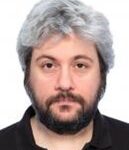
Aurelio Insisa
Aurelio Insisa is a Senior Asia Fellow within the Global Actors Programme at the Istituto Affari Internazionali. Aurelio holds a PhD from the University of Hong Kong, where he taught for six years. His main research interests centre on the foreign policy of the People’s Republic of China, cross-Strait relations between Beijing and Taipei, and Taiwanese politics. Aurelio is the co-author of the monograph Sino-Japanese Power Politics (Palgrave, 2017) and has published numerous studies for the NATO Strategic Communications Centre of Excellence, as well as for academic journals such as International Affairs, China Quarterly, e Pacific Review.

Federica Marconi
Federica Marconi is a a researcher at IAI (Istituto Affari Internazionali), in the Multilateralism and Global Governance Programme. Moreover, she is a Ph.D. candidate in “Theory of Contracts, Services and Markets” at the University of Rome Tor Vergata, where she is also teaching assistant on the courses of “Introduction to Public Law” and “European Administrative Law”.
Her research engages themes of international relations and geopolitical competition. A major stream of research concerns foreign direct investment screening mechanisms, with a particular focus on the European Union and the US and their relations with China.
Keywords: Geopolitical competition and risk; International trade and investment; FDI screening mechanism
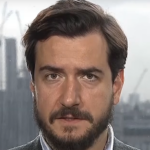
Giulio Pugliese (former team member)
Dr Pugliese is Lecturer at the Oxford School of Global and Area Studies, University of Oxford, Part-Time Professor on EU-Asia Studies at the European University Institute and Senior Fellow at the Istituto Affari Internazionali. He specialises in the international politics of the Asia-Pacific with a focus on Japan, China and the United States. He has presented and published on academic, policy-oriented and commercial themes, including in The Australian Journal of International Affairs, The Asia-Pacific Journal, International Affairs, Pacific Affairs, The Pacific Review, Defence Strategic Communications. He is a regular contributor to Asia Maior, Italy’s leading journal on contemporary Asian affairs, and co-author of Sino-Japanese Power Politics: Might, Money and Minds (Palgrave MacMillan, 2017, also available in Korean).
Macao Scientific and Cultural Centre, Portugal

Roger Greatrex
Ph.D. in Sinology, Stockholm University, Sweden, 1987
Professor in Chinese Studies, Lund University, Sweden, 2000-2016
Director, Centre for East and South-East Asian Studies, Lund University, 2002-2016
Professor emeritus, Centre for East and South-East Asian Studies, Lund University, 2016-present
European Director, EU-China Higher Education Cooperation Programme, 1996-2002
Vice-Chairperson, Board of Directors, Nordic Institute of Asian Studies, 2004-2007
Vice-President, European Association for Chinese Studies, 2008-2010
President, European Association for Chinese Studies, 2010-2016
Research focus:
- History of Chinese administrative and criminal law
- Modern Chinese trade-mark law
- Legal issues related to the Belt and Road Initiative

Carmen Mendes
President of the Macau Scientific and Cultural Centre (Lisbon). Associate Professor of International Relations with tenure, accredited at the School of Economics of the University of Coimbra, where she established the course “China and the Portuguese-speaking Countries in World Trade”. Former head of the International Relations department and coordinator of the School of Economics International Office at the same university. Holds a Ph.D. degree from the School of Oriental and African Studies – University of London, a Master degree from the Institute of Higher European Studies – University of Strasbourg, and a Bachelor degree from the Institute of Social and Political Sciences – University of Lisbon. She was a Post-doctorate scholar at the Institute of Political Studies of the Portuguese Catholic University of Lisbon and visiting professor at the University of Macau, the University of Salamanca and the University of Lyon. She was a board member of the European Association for Chinese Studies, and the organizer of the 2014 EACS conference in Coimbra; and president of the International Relations Section and member of the board of the Portuguese Political Science Association. Principal Investigator at the University of Coimbra on a research project on the role of Macau in China´s relations with the Portuguese speaking-countries, funded by the Portuguese national funding agency for Science, Research and Technology; and on a project on South-South Cooperation for the Europe China Research and Advice Network, supported by the European External Action Service. Auditor of the Portuguese National Defense Institute. Co-founder of the consulting company ChinaLink, and of the Observatory for China in Portugal. Author of China and the Macau Negotiations, 1986-1999 (HKUP) and China’s New Silk Road: An Emerging World Order (Routledge), as well as other publications available for consultation at: www.uc.pt/feuc/carmen
Palacky University Olomouc, Czech Republic
Palacký University (UP) is the third largest university in Czechia. The eight faculties of UP currently offer BA and MA study programmes and more than 200 PhD programmes. The university also provides exchange programmes and lifelong learning programmes. UP infrastructure includes more than 10 Centers of Excellence, libraries with strong support of Open Access policies and modernized training facilities. In 2021, UP obtained the HR Excellence in Research Award.
As a research-oriented university, UP has developed a strongly international profile. A total of 30 projects were funded within Horizon 2020 at UP and so far, UP obtained the second highest amount of funding from Horizon Europe in Czechia. UP excellent research teams are involved also in projects funded by ESIF Operational programmes, Czech Science Foundation and other national and international funding schemes.
UP also plays a significant role in the region. It is one of the largest employers in the Olomouc Region and the City of Olomouc, directly contributing to the local and regional economic growth and development and actively building partnerships with various stakeholders.
Department of Asian Studies is the largest centre focusing on Asia in the Czech Republic. The department previously hosted large research projects, including ‘Chinet’ and ‘Sinophone Borderlands – Interactions at the Edges’.

Richard Turcsanyi
Assistant Professor and Senior Researcher at the Department of Asian Studies, Palacky University Olomouc.
He is a political scientist specializing in Chinese foreign policy, China’s relations with (Central and Eastern) Europe, and public attitudes toward China.
He is the author of ‘Chinese Assertiveness in the South China Sea. Power Sources, Domestic Politics, and Reactive Foreign Policy’ (Springer) and co-editor of ‘Contemporary China: A New Superpower?’ (Routledge). He has recently conducted public opinion surveys about attitudes toward China in 56 countries worldwide and published articles in the Journal of Chinese Political Science, China Review, Asia Europe Journal, and Communist and Post-Communist Studies.
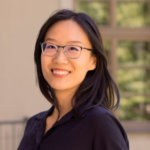
Runya Qiaoan
Assistant Professor and Senior Researcher at the Department of Asian Studies, Palacky University Olomouc
She is a cultural sociologist specializing in Chinese civil society, state-society interaction, NGOs, media, and political narratives.
She is the author of “Civil Society in China: How Society Speaks to the State” (Routledge) and her recent articles appeared in the Journal of Chinese Political Science, China Information, and Asia Europe Journal.

Giorgio Strafella
Assistant Professor at the Department of Asian Studies, Palacký University Olomouc.
His current research focuses on intellectual discourse, ideology, and visual art in contemporary China.
He is the author of Intellectual Discourse in Reform Era China (2017). His work has appeared in journals, including Asian Studies Review and China Information, and in edited volumes.

Filip Kraus
Assistant Professor at the Department of Asian Studies, Faculty of Art, Palacký University Olomouc.
He specializes on Chinese politics and the PRC’s political influence in Southeast Asia, Vietnamese international relations, socio-cultural anthropology of Vietnamese society, and Vietnamese migration and diaspora.
Swedish Institute of International Affairs, Sweden

Björn Jerdén
Director at the Swedish National China Centre of the Swedish Institute of International Affairs.
Jerdén has a PhD in Political Science from Stockholm University and a master’s degree in International Relations from Malmö University. He has been a visiting fellow at National Chengchi University, National Taiwan University, National Chengkung University and Harvard University. From 2016 to 2020, Björn was the head of the Asia Programme at the Swedish Institute of International Affairs.
Jerdén is representing the Swedish National China Centre of the Swedish Institute of International Affairs.

Patrik Andersson
Analyst at the Swedish National China Centre of the Swedish Institute of International Affairs.
Patrik Andersson has a PhD from Aalborg University. His thesis examined how China’s foreign policy priorities and demand for different minerals and raw materials shape the decisions and approaches of Chinese mining companies in the Arctic. Patrik has previously worked at the Danish Institute for International Studies (DIIS). He also holds a master’s degree in Asian studies from Lund University, a master’s degree in ancient Chinese literature from Beijing Normal University and a bachelor’s degree in Chinese from Sichuan University.
Role: Task leader (WP 4.2).

Linus Hagström
Professor of Political Science at the Swedish Defence University and Senior Research Fellow at the Swedish National China Centre of the Swedish Institute of International Affairs.
Hagström received his PhD in political science from Stockholm University in 2003. He has been a research fellow with the Royal Academy of Letters of Letters, History and Antiquities (2009–14) and a Senior Research Fellow (2008–2021) and East Asia Programme Director (2008–15) at the Swedish Institute of International Affairs. He is currently an editorial board member of Pacific Affairs, Journal of Peace and War Studies, Journal of Northeast Asian History and Bristol University Press’ East Asian International Relations series. Hagström is currently a Senior Research Fellow at the Swedish National China Centre at the Swedish Institute of International Affairs.
Role: Researcher with a focus on Chinese security policy.
University of Groningen, Netherlands

Laurens Hemminga
Researcher – Department of International Relations and International Organization, Faculty of Arts, University of Groningen
Political scientist, expert on EU-China relations and EU foreign policy. In ReConnect China, he researches the European Commission’s efforts to increase market access in China through the Market Access Strategy.

Tjalling H.F.Halbertsma
Director International at the Centre for East Asian Studies Groningen – personal profile page
Tjalling Halbertsma is Director International at the Centre for East Asian Studies Groningen. Together with colleagues at the University of Groningen he contributes to the ReConnect China Workpackage 2 on Economy and Trade regarding the domain of economic diplomacy.
University of Tartu, Estonia

Urmas Hõbepappel
Urmas Hõbepappel is an analyst at the Asia Centre, University of Tartu. His research focuses on China’s history politics and political psychology, but his public engagement spans all topics to do with Chinese politics and society. Urmas also works as a tour guide in Asia (mostly China) and runs a private consulting business. His ReConnect China focus in China’s domestic politics.

Eiki Berg
Eiki Berg is a Professor of International Relations at the University of Tartu. He has published widely in leading peer-reviewed journals on different aspects of de facto state dynamics. He is co-editor of The Politics of International Interaction with De Facto States: Conceptualising Engagement without Recognition (Routledge, 2018) and co-author of De Facto States and Land-for-Peace Agreements: Territory and Recognition at Odds (Routledge, 2022). In 2012, he received National Science Award in the field of Social Sciences, for the research in “Identities, Conflicting Self-Determination and De Facto States”. In ReConnect China project he explores China’s isolation policy towards Taiwan at three different levels: 1) international organizations (especially UN system organizations such as the WHO); 2) countries recognizing the Republic of China (Taiwan); 3) EU countries with which Taiwan has close economic and cultural ties (Czech Republic, Slovakia, Lithuania).

Anastasia Sinitsyna
Anastasia Sinitsyna is a Ph.D. candidate in Economics at the University of Tartu. Her Ph.D. dissertation topic is “Relations Between Spatial and Economic Segregation: Case of Estonian Diaspora in Finland.” Since 2020 she is of sub-leader of the Working Group in European Cost-Action project CA18214 “The Geography of New Working Spaces and impact on the periphery” and the visiting researcher at the Norwegian University of Life Sciences. Currently, Anastasia is employed as junior research fellow in Asia Centre of University of Tartu. Her ReConnect China focus is to find synergy between different subject groups and to contribute to the organization of various conferences and roundtables.
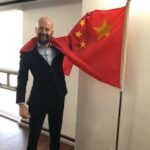
Robert Weatherley
Robert Weatherley is an affiliated lecturer in Chinese politics and international relations at the University of Cambridge and King’s College, London, as well as a Visiting Professor of Asian Studies at the University of Tartu in Estonia. He has published on a number topics often regarding the nature of Chinese political discourses and well as on aspects of Chinese law, including China’s Death Penalty Criminal Reconciliation and the trade dispute between China and the EU regarding the enforcement of intellectual property. His ReConnect China focus will be to write policy papers on official Chinese human rights and democracy narratives, the discourse of Eco-Civilisation in Chinese environmental discourses and China’s discourse on good governance and regime legitimacy

Elo Süld
Elo Süld is the head of the Asia Centre and a lecturer in Islamic studies at the Faculty of Religion of the University of Tartu. As the head of the Asia Centre, she is involved in the coordination of various projects, incl The Political, Economic and Cultural Role of Asia for Northern and Eastern Europe; The impact of the Ukrainian war on geopolitical developments in South Asia. Analysis in collaboration with Singaporean researchers. She also has initiated the initiation of Estonia’s Asia strategy and has also led the preparation of the Estonia-Asia report. Her ReConnect China focus is to find synergy between different subject groups and to contribute to the organization of various conferences and roundtables.
University of Turku, Finland

Roosa Letho
Roosa completed her Master’s degree in 2022 at the Centre for East Asian Studies at the University of Turku. She joined the ReConnect China in early 2023 as a Project Coordinator. Together with the UTURKU team, she is responsible for the creation of MOOC-courses (Massive Open Online Courses), which aim to broaden the China -knowledge among Europeans.

Mikael Mattlin
Research Professor and Head of CORD (FIIA), Senior Lecturer and Adjunct Professor (UTU) – personal profile page
![]()
![]()
Areas of expertise: China’s foreign policy, economic statecraft, teaching simulations & games, political systems, strategy

Outi Luova
University lecturer, Docent
Vice-Director of the Centre for East Asian Studies, University of Turku, Finland
Director of the Finnish University Network for Asian Studies (Asianet)
Expert on Chinese society and politics, especially urban governance, environmental policy, and science policy.
In ReConnect China, she coordinates the development on MOOC courses and contributes to the WP one and three with analysis on China’s science policies at the local level.

Lauri Paaltemaa
Professor and Director of the Centre for East Asian Studies, UTU
Political Scientist and Contemporary Historian, Expert on China, Chinese Governance and Politics
In ReConnect China, he works as a researcher on the WP3 on China’s domestic policies and contributes to the WP5 creation of MOOC courses and other educational contents of the project.
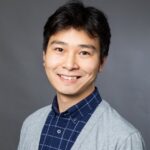
Junhua Zhu
Junhua Zhu is a doctoral researcher focusing on the ethics and governance of AI in China. Funded by Jenny and Antti Wihuri Foundation, he works full-time at Centre for East Asian Studies, University of Turku. He has received training from the Young Summer Scientist Programme at International Institute for Applied Systems Analysis (sponsored by Academy of Finland) and the Recognised Student Programme at Oxford Internet Institute, University of Oxford. Prior to ReConnect China, Zhu has worked as member researcher in the project funded by Academy of Finland. Some of his research results have been published by peer-reviewed academic journals such as AI & Society and Journal of Aging and Social Policy. Previously, he graduated from Lund University with a Master of Science degree in Asian Studies.
University of Vienna, Austria

Christian Göbel
Christian Göbel is University Professor of Modern China Studies at the University of Vienna, Department of East Asian Studies. A political scientist and sinologist by training, his research is concerned with the adaptability of the Chinese Party-State to social, economic and political challenges. He is especially interested in effects of digital technology on state-society relations in China. Christian leads WP3 (China’s domestic governance) and is responsible for establishing a database on local government initiatives and social media discourses on relevant political issues. He also conducts research on social protest and government responsiveness.
Zentrum für Soziale Innovation, Austria

Philipp Brugner
Researcher and Project Manager – Department for Research Policy and Development, ZSI
Political Scientist, Expert on Russia, Eastern Neighbourhood and EU global policy priorities, with a specialisation on R&I policy analysis, EU governance and impact maximisation of EU-funded projects
In ReConnect China, he works on maximising impact, analysis of EU-China STI cooperation (based on co-publications and co-patents) and contributes to China’s foreign policy and economic diplomacy towards the EU

Gabor Szüdi
Researcher and Project Manager – Department for Research Policy and Development, ZSI
Political Scientist, Economist with an expertise on science communication, R&I policy analysis and the interplay between ethics, integrity and trust in conducting scientific research
In ReConnect China, he works on maximising impact, analysis of EU-China STI cooperation (based on co-publications and co-patents) and contributes to China’s foreign policy and economic diplomacy towards the EU